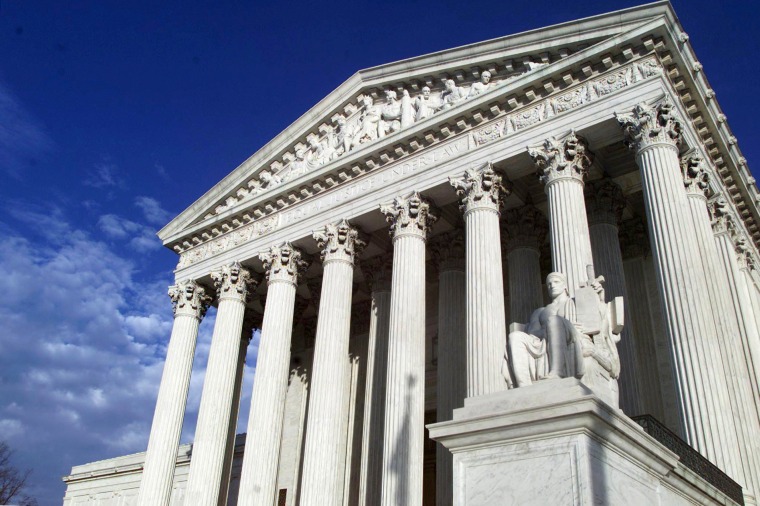For those involved in the fight over reproductive rights, the question hasn't been whether the U.S. Supreme Court will put the Roe v. Wade precedent at risk, but rather, when the justices will do so.
This morning, the answer to that question came into focus.
The Supreme Court said Monday it would consider the legality of Mississippi's ban on most abortions after 15 weeks of pregnancy, which had been struck down by a lower court ruling. The announcement is a boost to abortion opponents, who hope that a newly conservative court, especially after the appointment of Justice Amy Coney Barrett, will be more receptive to abortion restrictions.
Pete Williams, NBC News' justice correspondent, appeared on MSNBC this morning and explained that the high court's announcement is "a very big deal," and it's worth appreciating why.
Several Republican-led state governments started advancing new abortion bans after Donald Trump and GOP senators rushed Justice Amy Coney Barrett onto the Supreme Court last fall. But Mississippi Republicans took related steps even earlier, approving the "Gestational Age Act" in 2018, banning abortions after 15 weeks of pregnancy.
What followed was predictable. The Center for Reproductive Rights filed suit, challenging the constitutionality of the state measure; a district court agreed and struck down Mississippi's policy; and the 5th U.S. Circuit Court of Appeals upheld the lower court's decision.
For a while, the Supreme Court let Dobbs v. Jackson Women's Health Organization linger, right up until this morning. It will be the first key showdown on reproductive rights since conservatives gained a dominant, six-member majority on the nine-member Supreme Court.
Note, the Supreme Court actually struck down abortion restrictions in Louisiana last year, in a 5-4 ruling in which Chief Justice John Roberts sided with the more progressive justices. But since then, Ruth Bader Ginsburg has passed and been replaced by Barrett, who hasn't been shy in her condemnations of abortion.
All of which suggests the Roe v. Wade precedent is facing a serious threat.
As a rule, it's best not to engage in too much guesswork when assessing justices' motivations, but I'll note for context that the Supreme Court often takes up cases when there are divisions among appellate courts on the same issue. That doesn't apply here: at least four justices agreed to take up this case because they wanted to, which probably shouldn't ease the minds of reproductive rights advocates.
There's also a political context to all of this. The justices will hear the case in the fall and issue a ruling next year, probably in the early summer. Or put another way, we're faced with the possibility of the Supreme Court overturning Roe v. Wade -- in part or in its entirety -- just in time for the 2022 midterm elections, which will also coincide with a major new Second Amendment ruling.
For roughly a half-century, Republican politicians took advantage of a convenient political dynamic: GOP officials and candidates could rail against abortion rights, confident in the knowledge that Roe v. Wade was probably safe, and the status quo, which most voters were satisfied with, would remain intact for the foreseeable future.
What happens if/when Republicans become the dog that catches the car? In an election year?

